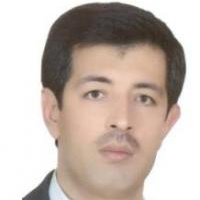The Role of the Government in Tourism Development with an Emphasis on Economic Policies
Author(s):
Article Type:
Research/Original Article (دارای رتبه معتبر)
Abstract:
The tourism industry, as one of the most profitable service industries in the world, is the priority of the economic income of many countries. In this article, due to the importance of the key position of the government in the economy and because the government is the main player in the political process of tourism development, the role of its economic policies is examined. In terms of purpose, this research is of applied type, in terms of conducting method, it is of descriptive-analytical type, and in terms of data collection method, it is survey type. The cross-sectional method and interview are used as data collection tools. The sources of information used in this method are theoretical foundations, research background, observations, documents, and in-depth interviews with experienced managers and experts. The statistical population under investigation is all those involved in the field of the tourism industry. The statistical sample interviewed was 30 academic experts, experts in tourism policy and Iran's economy. The sampling method used for the in-depth semi-structured interview with the interviewees was the judgmental purposeful sampling method and the snowball method, and it is carried out until the theoretical saturation stage in the subject of the article. Structural analysis of examining the factor structure between the second-order variables and the first-order variables shows that the second-order variable (tourism development) and the first-order variables (entrepreneurship development and job opportunities, competition between potential areas, government investment in the tourism sector, economic policies of the government in the field of tourism, maximum participation of society and the private sector) have significant causal relationships. In the relationship between the second-order variable (tourism development) and the first-order variable, the government's economic policy in the field of tourism (B=0.89) and competition between susceptible regions (B=0.60) were identified as the first and last rank respectively. The results show that the government's economic policy component in the field of tourism with a coefficient of 0.89, the component of entrepreneurship development and employment opportunities with a coefficient of 0.88, and the component of government investment in the tourism sector with a coefficient of 0.83 have the greatest impact on the development of tourism in Iran. have. Furthermore, the component of the maximum participation of the community and the private sector with a coefficient of 0.66, and the component of competition between susceptible areas with a coefficient of 0.60 have the least effect on the promotion and development of tourism.
Keywords:
Language:
Persian
Published:
Journal of Urban Economics, Volume:7 Issue: 1, 2022
Pages:
19 to 38
https://magiran.com/p2700517
سامانه نویسندگان
مقالات دیگری از این نویسنده (گان)
-
Presenting a Worthy Governance Model for Tourism in Iran's Post-Coronavirus Era
Laaya Jalilian*, Mohammadtaghi Heydari, Mohsen Ahadanjad Roshti, Naser Rezaei
Journal of Applied Researches in Geographical Sciences, -
Identify the components affecting the happy city (Case Study: Babol City)
Milad Hasanalizadeh *, Reveshty, Abolfazl Meshkini
Social Development & Welfare Planing,



